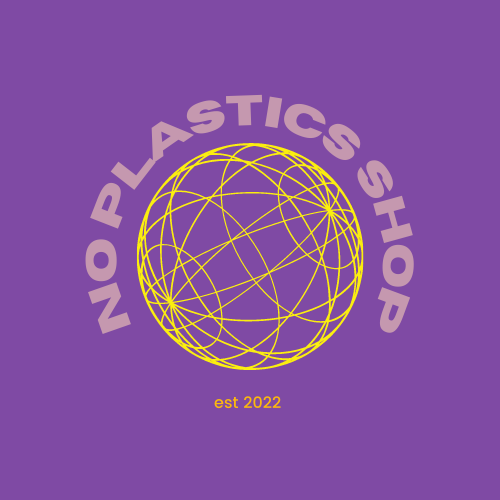Zero Waste & Eco-Friendly Q Tips (Ear Swabs)

Bye Bye Plastic Swabs: A Guide to Environmentally-Friendly Sustainable Alternative Swabs
As bad as Straws are on the environment, Plastic Free Straws Here
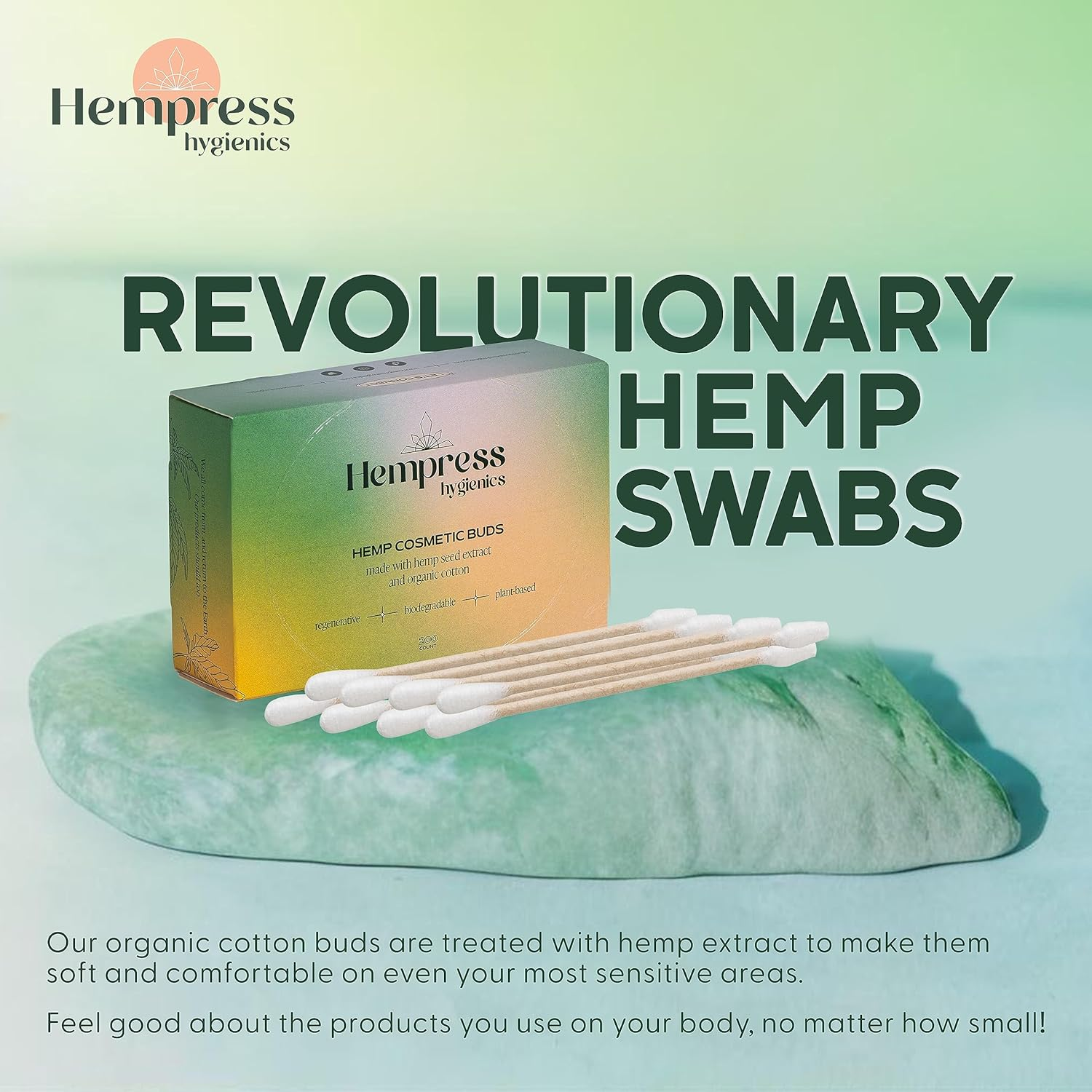
Hempress. Biodegradable Hemp Bamboo and Cotton
The use of Q-tips (ear swabs) is so common that we don't even think twice before getting one! But have you ever considered their negative impact on the environment? The use of plastic-made Q-tips has lasting effects that contribute to the toxic waste found in our landfills and oceans.
What's Wrong With Traditional Q Tips?
The answer is... nothing... originally.
Once upon a time, Q-tips were made from good-old-fashioned cotton. But alas, in the quest for convenience, plastic swooped in and stole the spotlight. The shift to plastic swabs occurred in the early 1960s. This was a time when plastics were viewed as futuristic and glamorous,
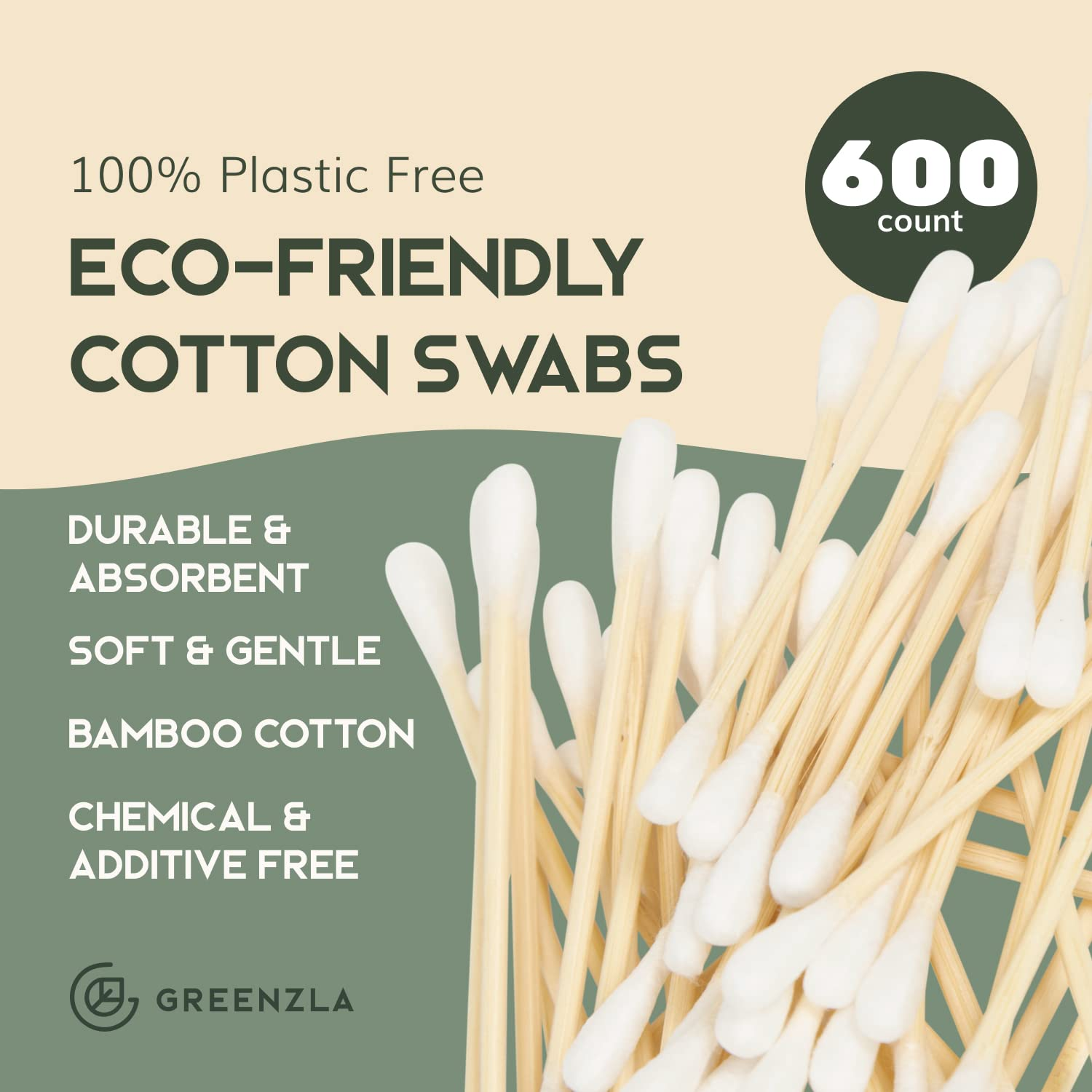
Greenzla. biodegradable organic cotton bamboo swabs
However, as we now know, these plastic Q-tips don't exactly disappear into thin air when discarded. In fact, they can take hundreds of years to decompose. Who knew that something as innocent as an ear swab could spark such important conversations about sustainability?
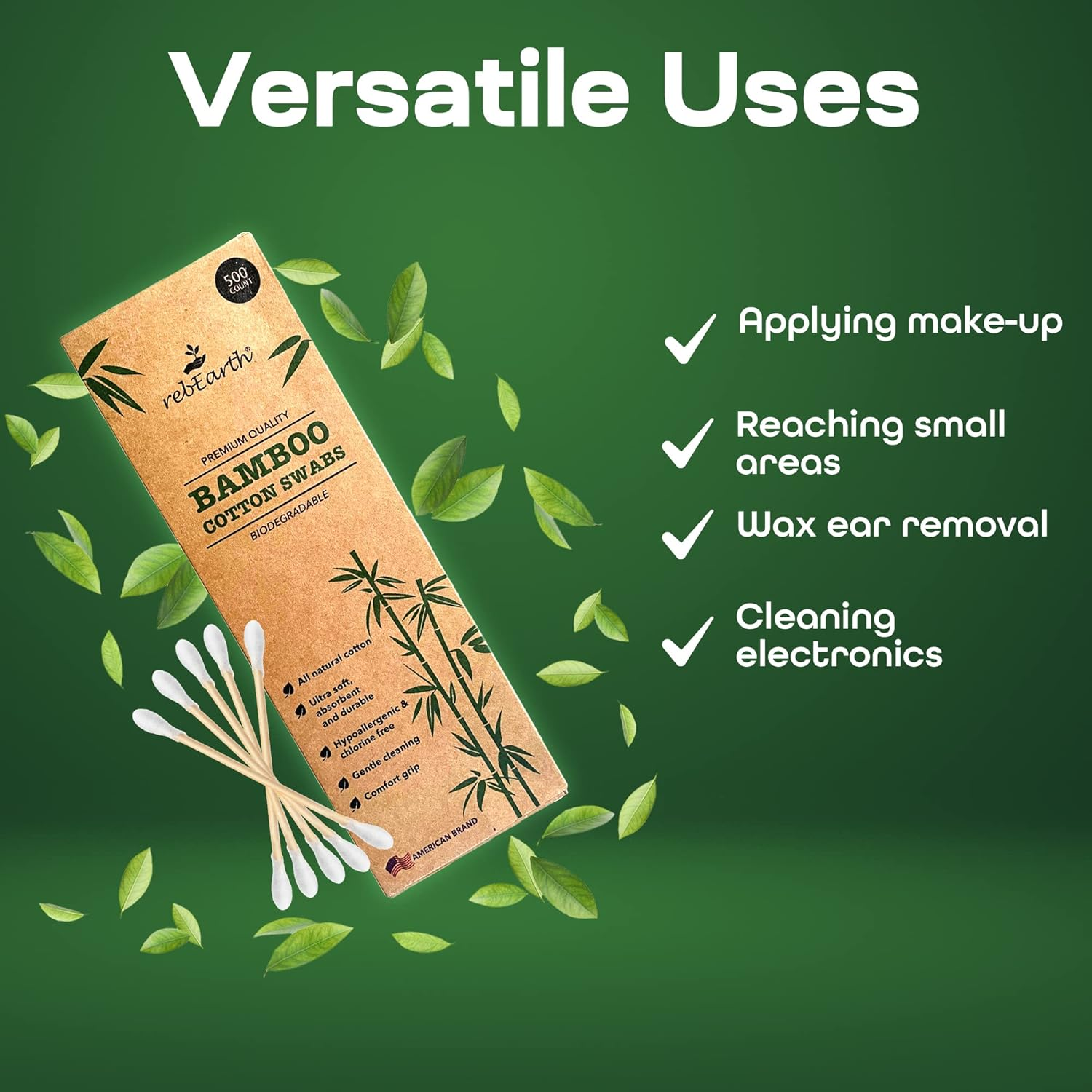
reEarth Bamboo. biodegradanle bamboo cotton swabs
Other Uses For The Common Swab
A medical professional might tell you, "Don't stick anything in your ear that's bigger than your elbow." And that might be a good rule if you don't know how to use one properly. You could damage delicate ear structures, cause painful infections, or even puncture your eardrum. Ouch! Hey, but used properly, as in like an adult, who doesn't enjoy a good ear massage?...while you're getting rid of all that wax. Nothing better for the job!
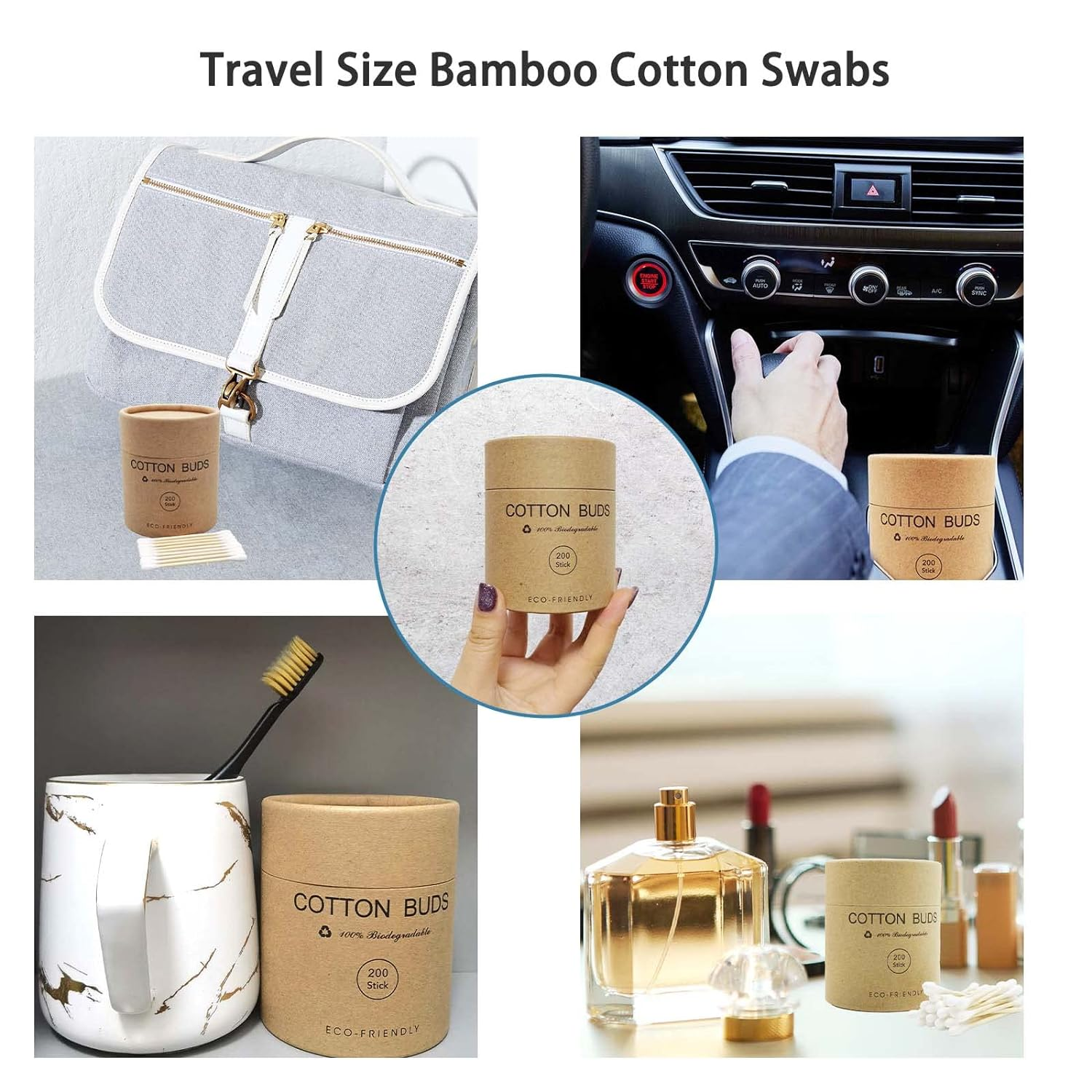
FOVURT biodegradable bamboo cotton swabs
Bamboo Cotton Swabs!
And just because cotton swabs are not meant to enter your ear canal itself, doesn't mean they don't have other valuable uses. Have you ever tried a cotton swab for cleaning the nooks and crannies of your computer keyboard? How about removing stubborn stains from clothing? Or even applying a precise amount of ointment to a small wound? Cotton swabs are versatile tools that are useful in a variety of situations.
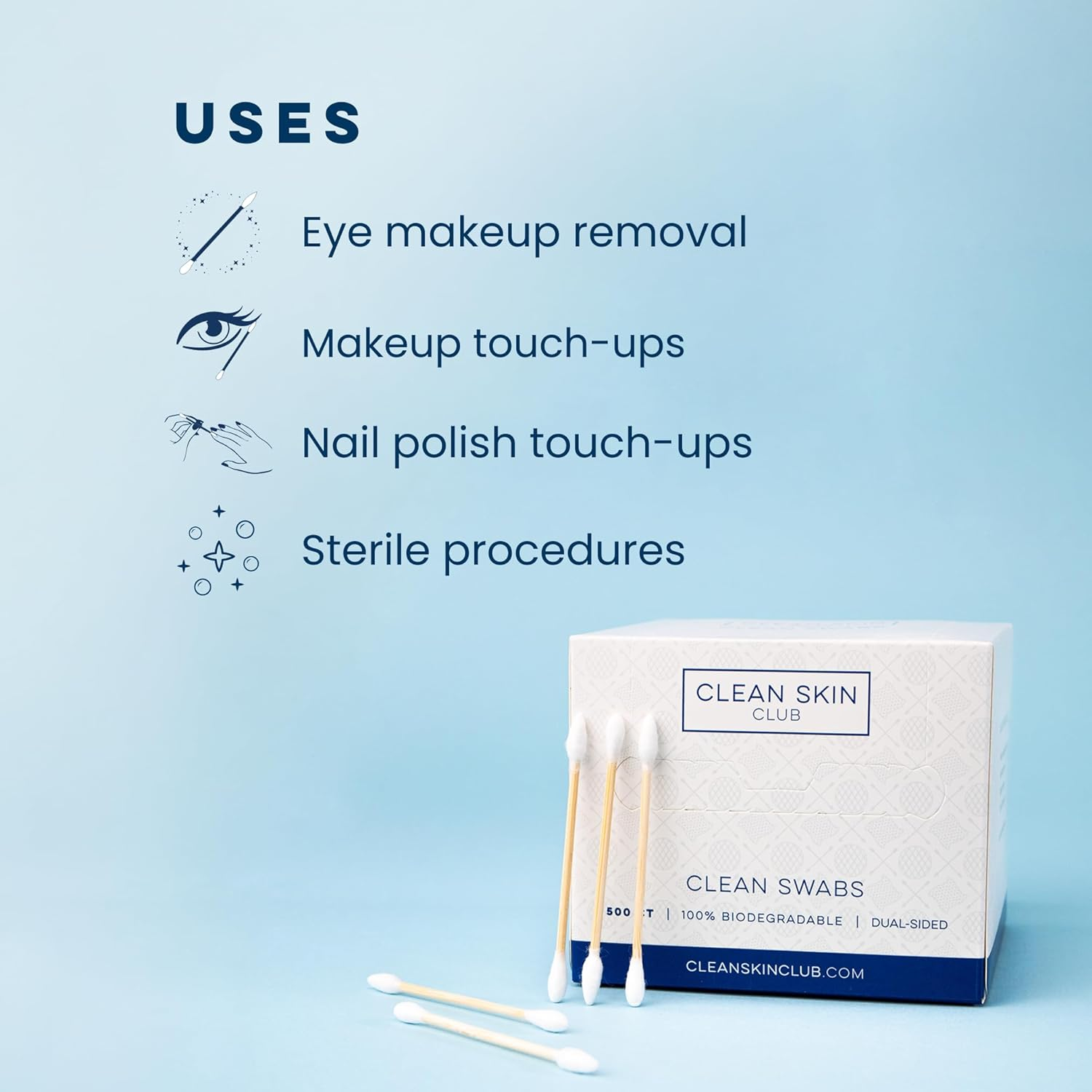
Clean Skin Club biodegradable cotton and bamboo swabs
In fact, did you know that NASA scientists have used cotton swabs to collect samples of moon rocks during the Apollo missions? Talk about a multi-purpose tool!
More On Q-Tip History
Let's go back to the humble beginnings of the Q-tip. Believe it or not, in 1923, Leo Gerstenzang invented this "baby grooming tool" using good ol' fashioned paper. Yes, back in the day, our Q-tips would have been biodegradable and environmentally-friendly, ain't that grand?
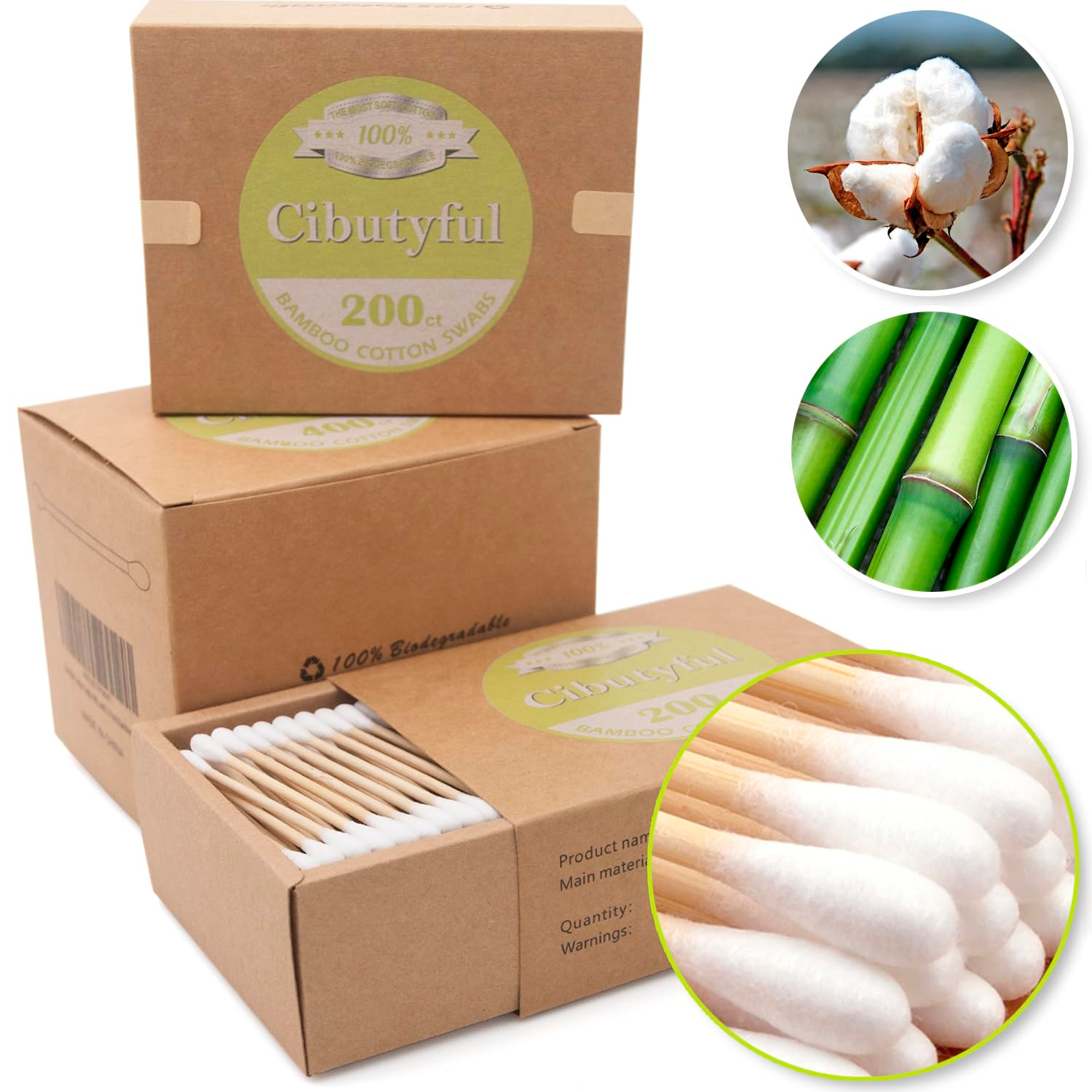
Cybutyful. natural materials, biodegradable, eco friendly
In the 1950s, the Q-tip company upgraded its game and switched to biodegradable cotton swabs with wooden shafts. But it wasn't until the 1960s that we saw the shift to plastic in regular Q tips. This is where the plot thickens, my friends.
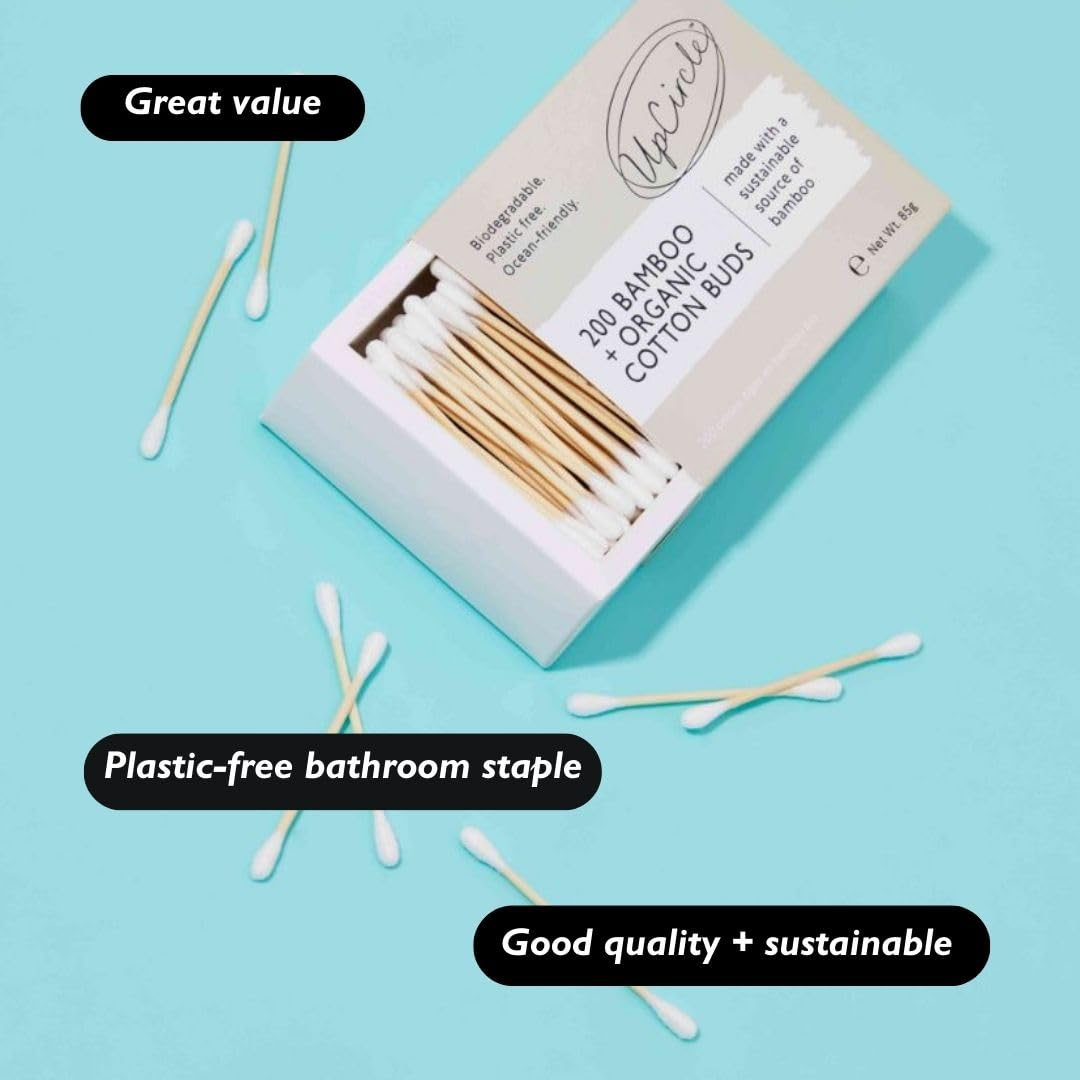
UpCircle. sustainably grown cotton tip
As with most things in life, the plastic Q-tip was born out of convenience and cost-effectiveness. Plastic manufacturers pushed their product as cheaper material than wood, and it allowed for more efficient production. (yeah right)
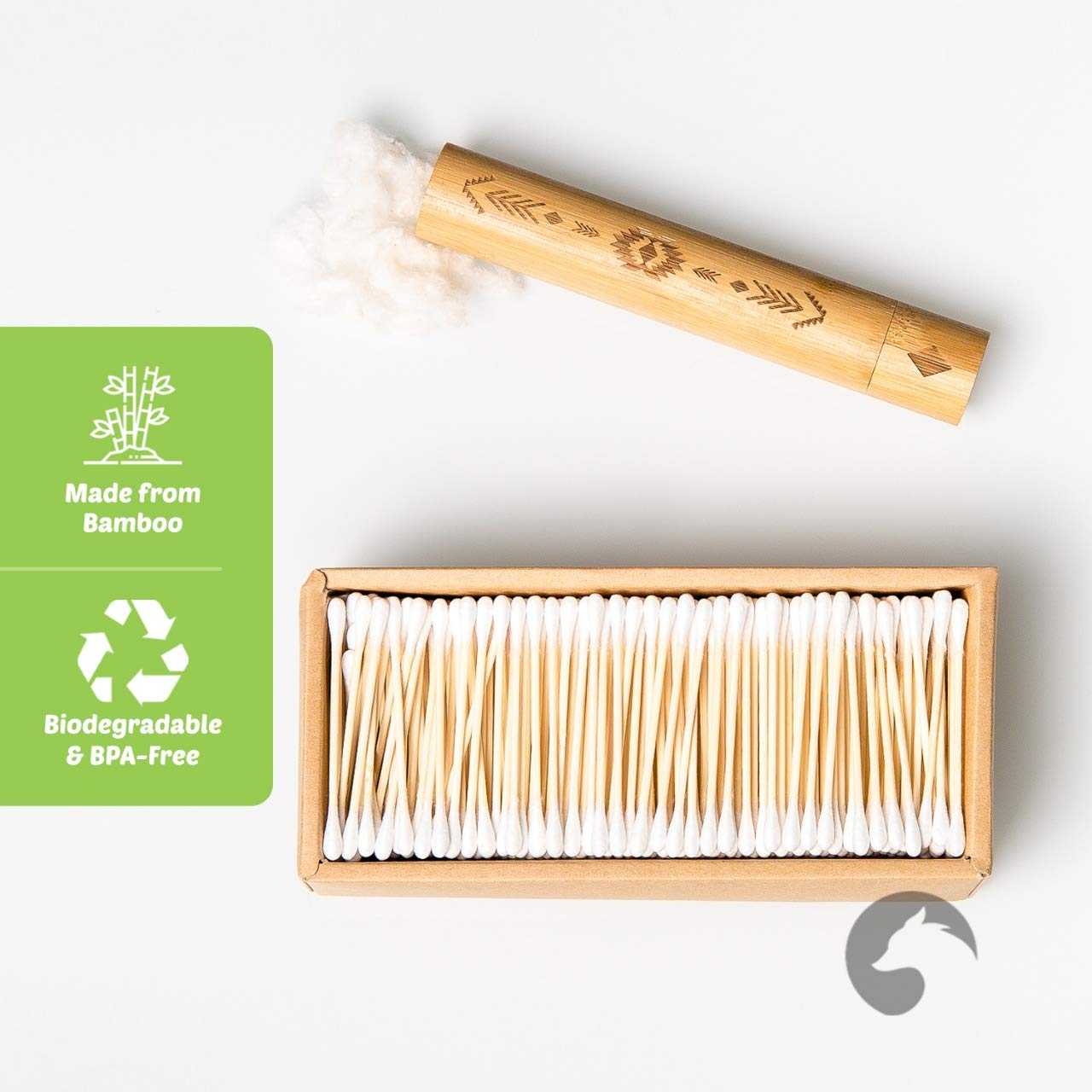
EcoFox organic biodegradable cotton swabs
Consumers were led to believe that plastics were more durable and easier to use than the wooden version. So, the demand skyrocketed, and before we knew it, our beloved swabs were being mass-produced in their plastic form.
The Best Reusable and Compostable Cotton Swabs
Now, some of you might be thinking, "Hey, wait a minute! What about the environmental impact?" And you're right to be concerned. The plastic Q-tip, unfortunately, is not biodegradable and can take up to 500 years to decompose. But now biodegradable and compostable Q-tips are making a comeback.
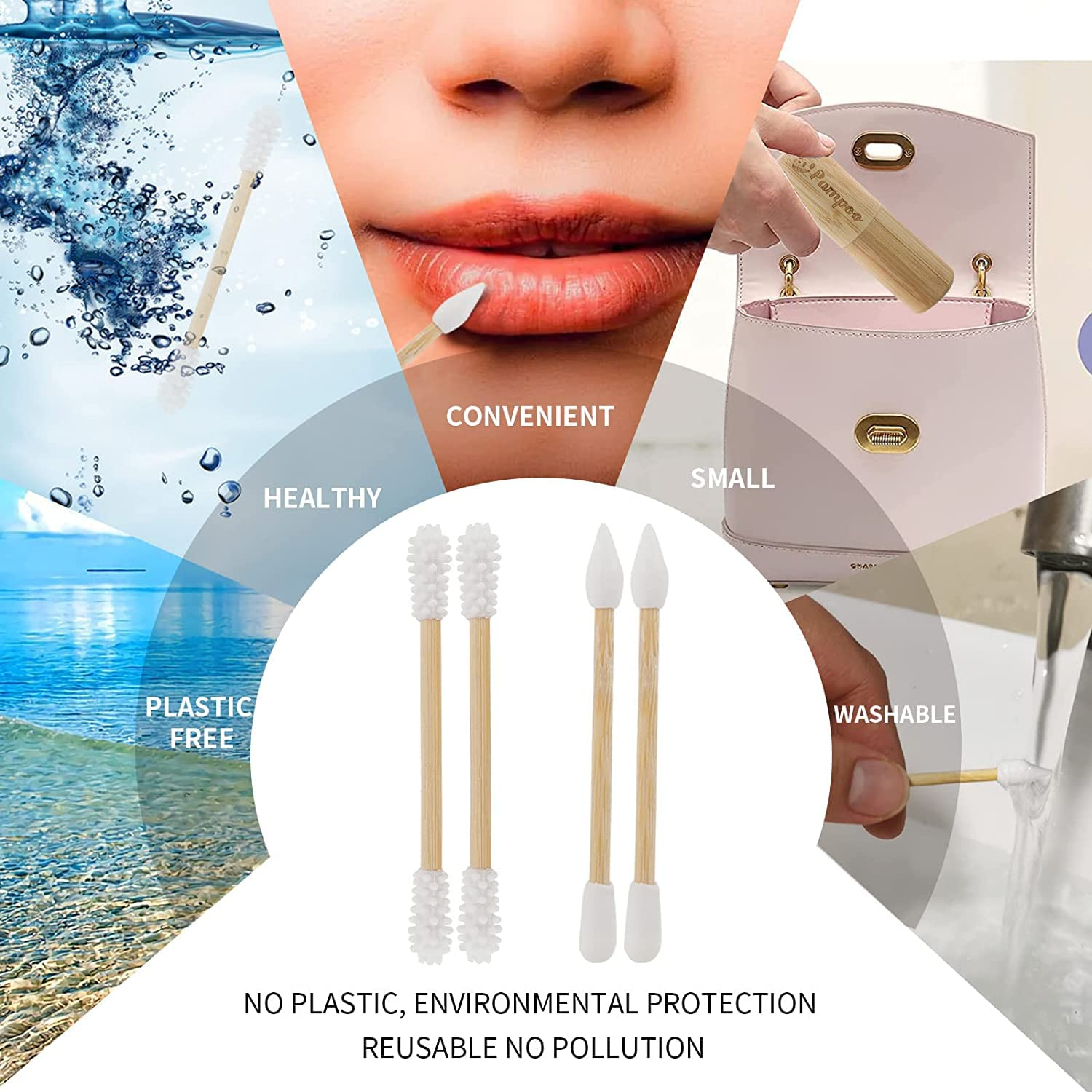
Pampoo Store. Reusable many shaped silicon
So there you have it, the history of the Q-tip and its not-so earth friendly transition to plastics. But let's not dwell on the negatives, let's celebrate that we now have better options for our ear-cleaning needs.
The Plight Of The Beloved Seahorse
Who just love to wrap their cute little tails around a plastic Q-tip... for some reason. Do them a favor and don't give them the chance.
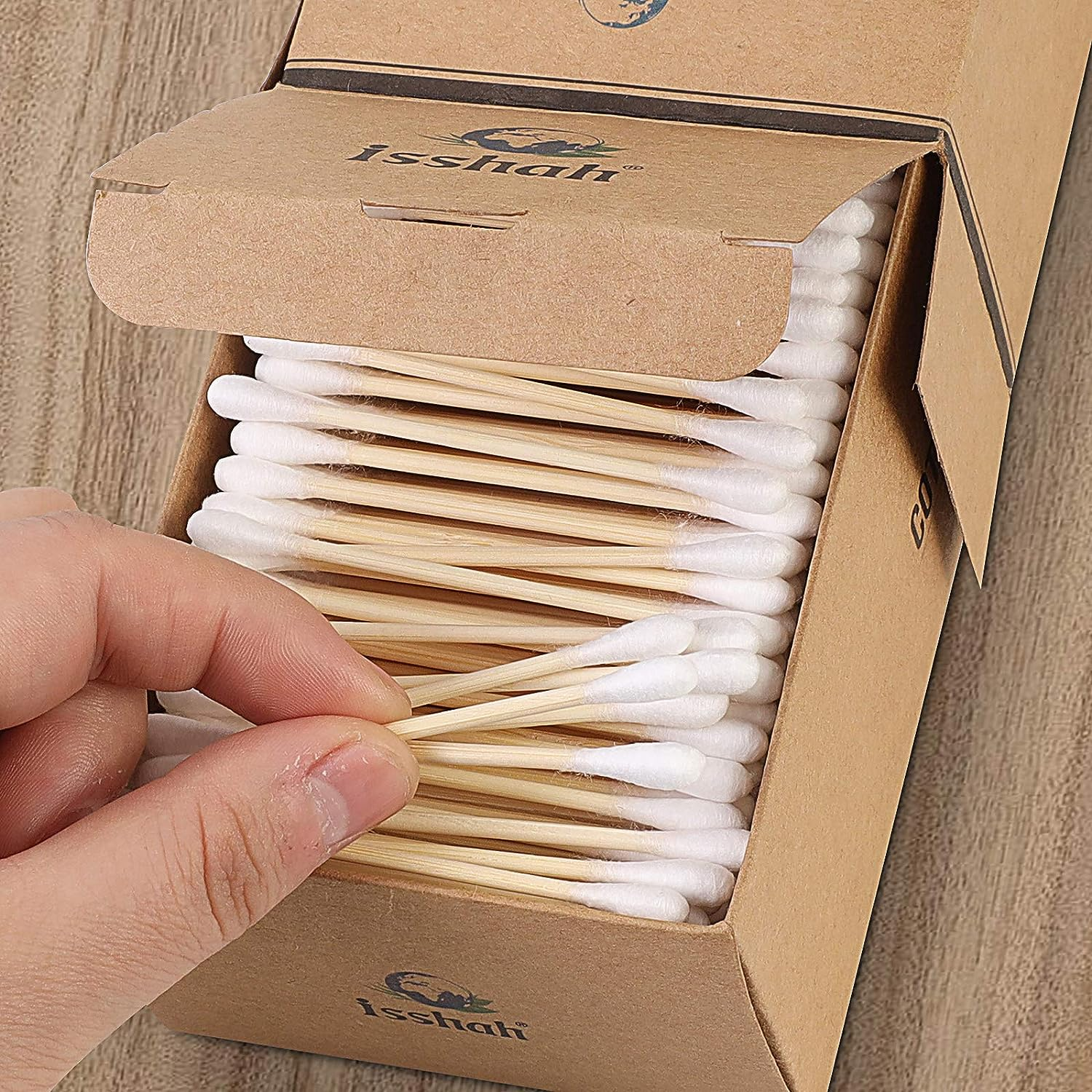
Isshah Store. made from biodegradable materials
Ah, seahorses. These enchanting creatures that glide through the water with their curvy tails and leaf-like fins. Did you know that seahorses are actually fish? And did you also know that plastic ear swabs are having a devastating impact on their fragile existence?
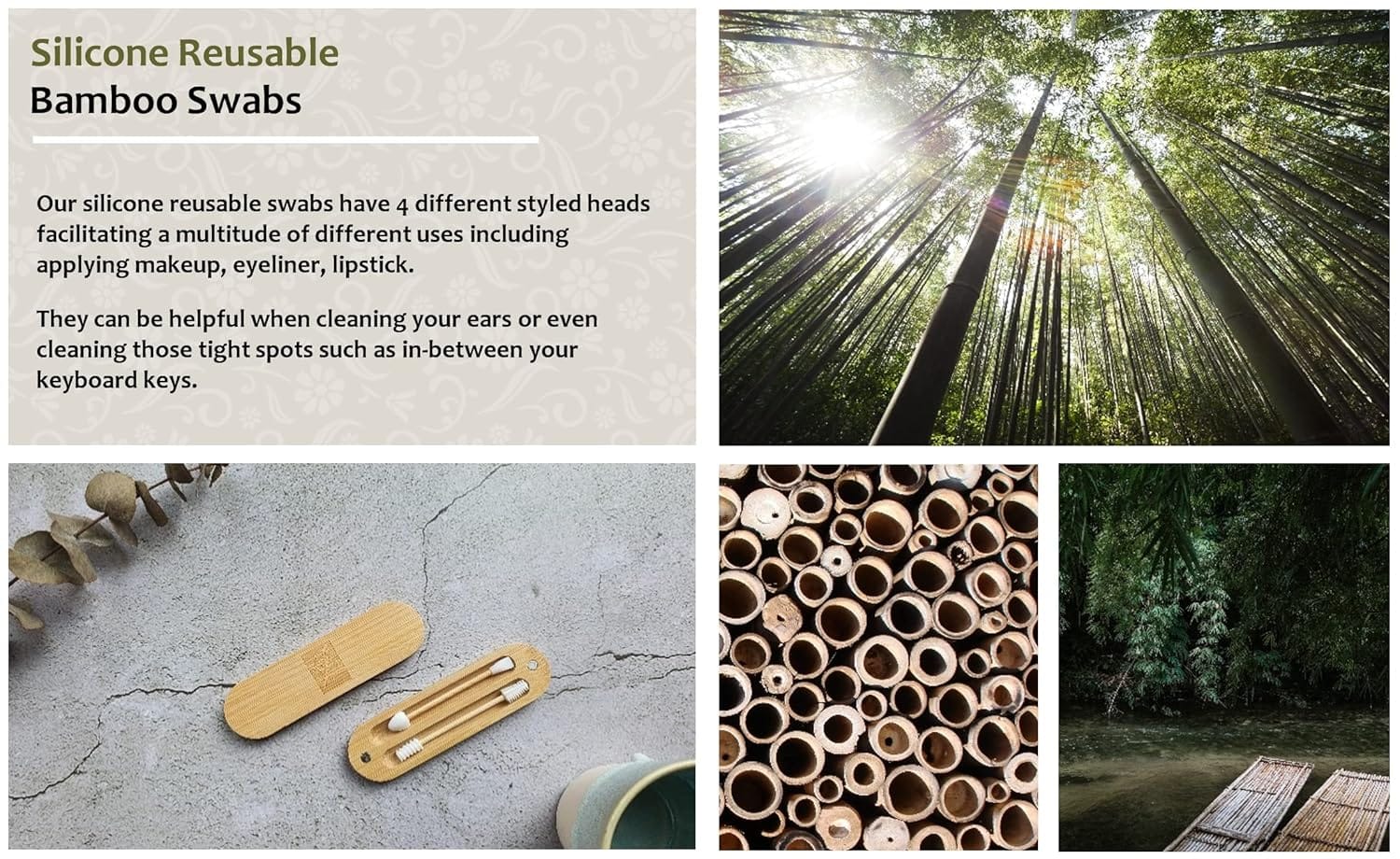
New Living An improvement over last year's option that included some - at least recycled - plastic.
New eco-friendly Q-tip innovation to hit the market are silicon ear cleaners. They are made of 100% medical-grade silicon, which can be washed and reused over and over again. You may think… washing the ears?
Yes, my friends, plastic ear swabs (or q-tips buds, if you prefer) are the bane of seahorses' existence. These tiny bits of plastics may seem harmless enough, but when they end up in the ocean, they can have deadly consequences for these delicate creatures.
Zero Waste Alternatives to Q Tips
Seahorses are notoriously picky eaters, and they mostly feed on tiny crustaceans and shrimp. They suck them up through their long snouts, which are perfectly adapted for their specialized diets. But when plastic ear swabs end up in their habitats, seahorses can mistake them for food and ingest them. This can lead to all sorts of health problems, including blocked digestive systems and starvation.
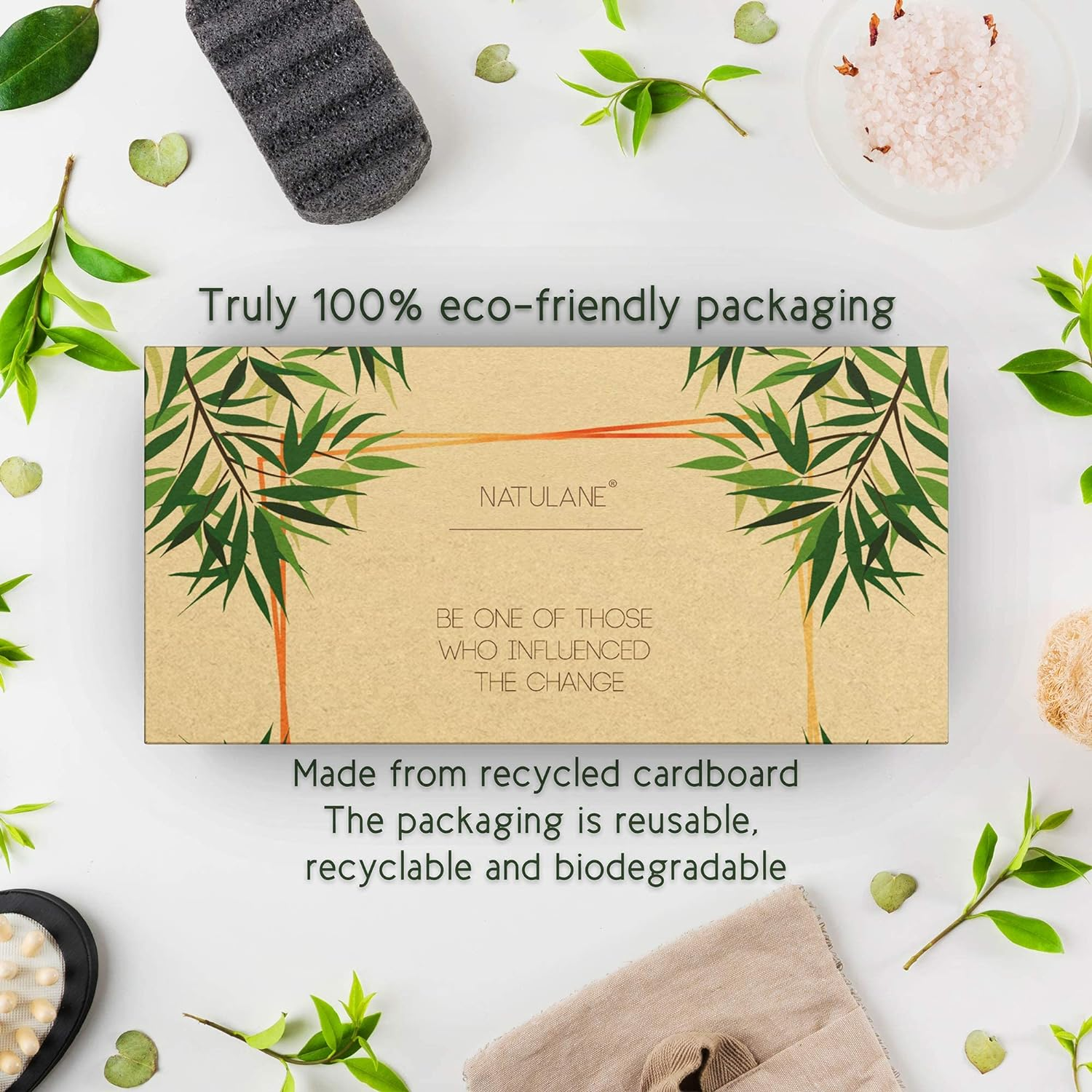
NATULANE. packaging counts too!
Biodegradable Cotton Fiber
But the environmental impact of plastic ear swabs doesn't stop there. These little devils are part of the larger problem of plastics pollution, which is wreaking havoc on our oceans and marine life and killing everything from turtles to whales to seahorses.
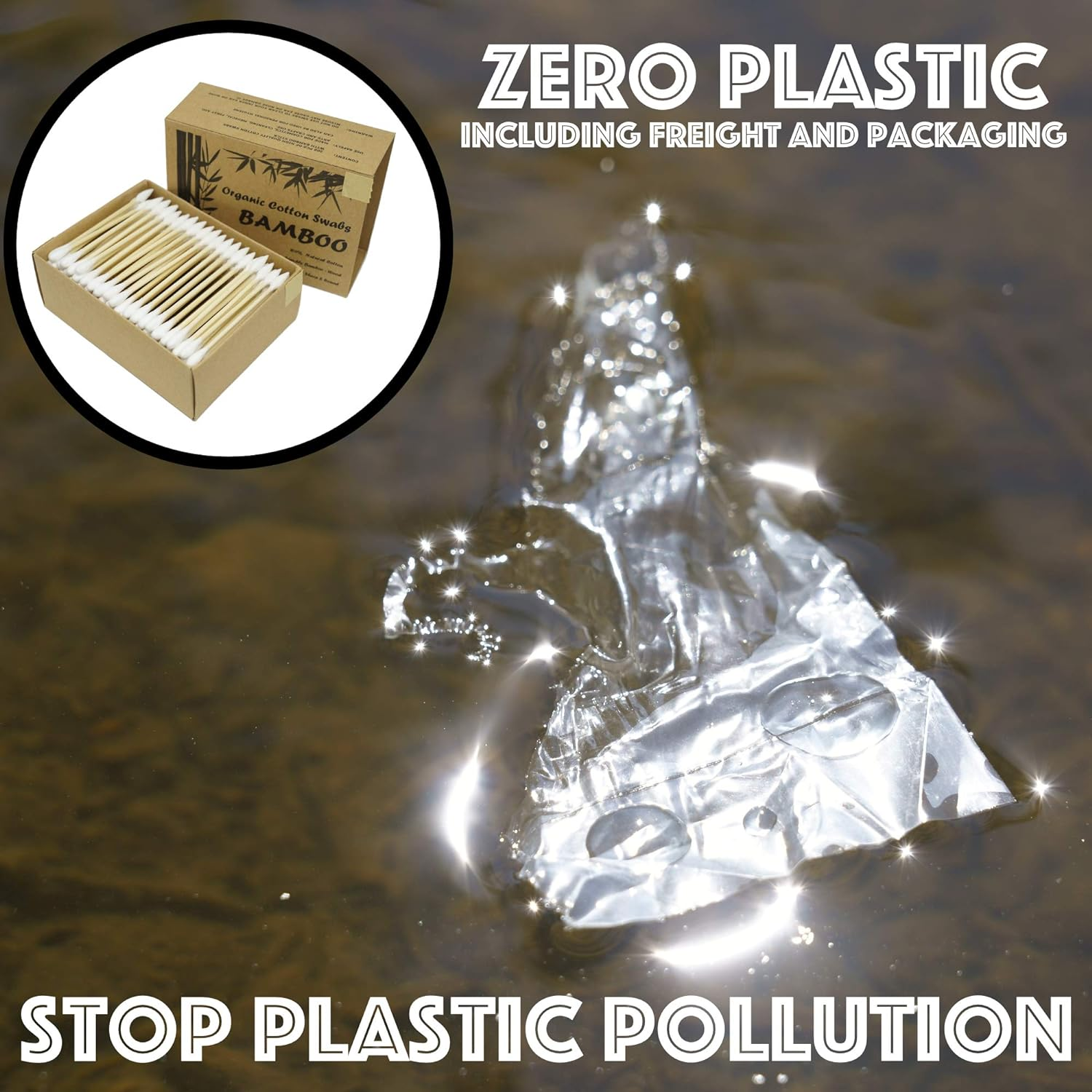
Now, you might be wondering why plastic ear swabs are still allowed in America when they're banned in most other countries. Well, it's because America has a bit of a complicated relationship plastic swabs. But that's a story for another day.
In the meantime, let's all do our part to reduce the use of polluting personal care products and single-use plastics in general. Your seahorse friends will thank you.
Say Yes to Compostable Materials
As we know, biodegradable and compostable materials are what we need to overcome the ever-growing pile-up of waste material. That's why the zero-waste lifestyle trend has become a game-changer in our quest to save the planet.
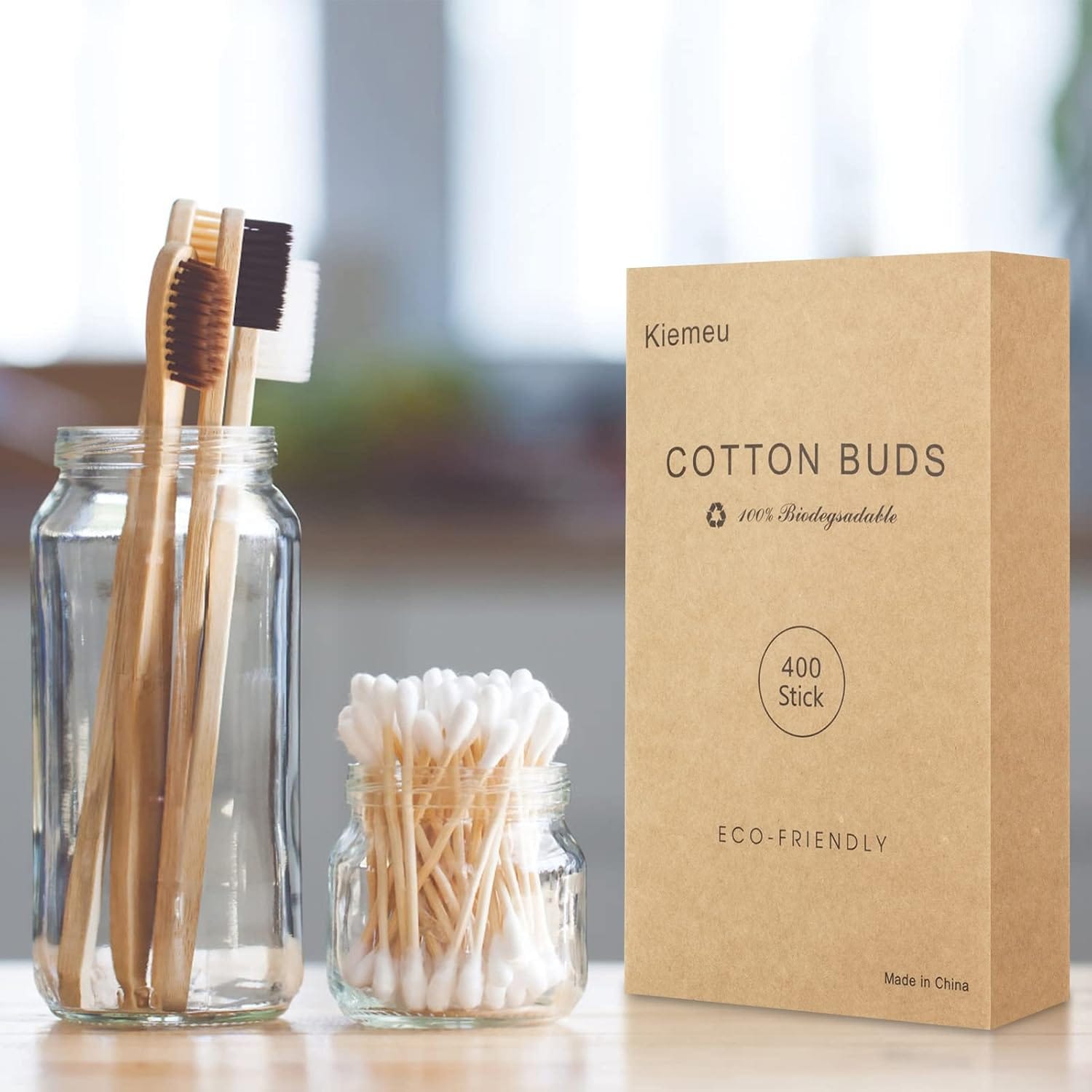
KIEMEU biodegradable cotton swab - spiral binding won't shed
Switching to sustainably made Q-tips is an easy yet effective way to support a sustainable future! Biodegradable packaging and compostable products seem to be the perfect solution.
Some earth-friendly Q-tips such as bamboo Q-tips, are made of renewable plant-based materials, recycled and compostable cotton. These organic products are meant to be thrown out after use without creating any harm to the environment.
MORE REUSABLE Q TIPS
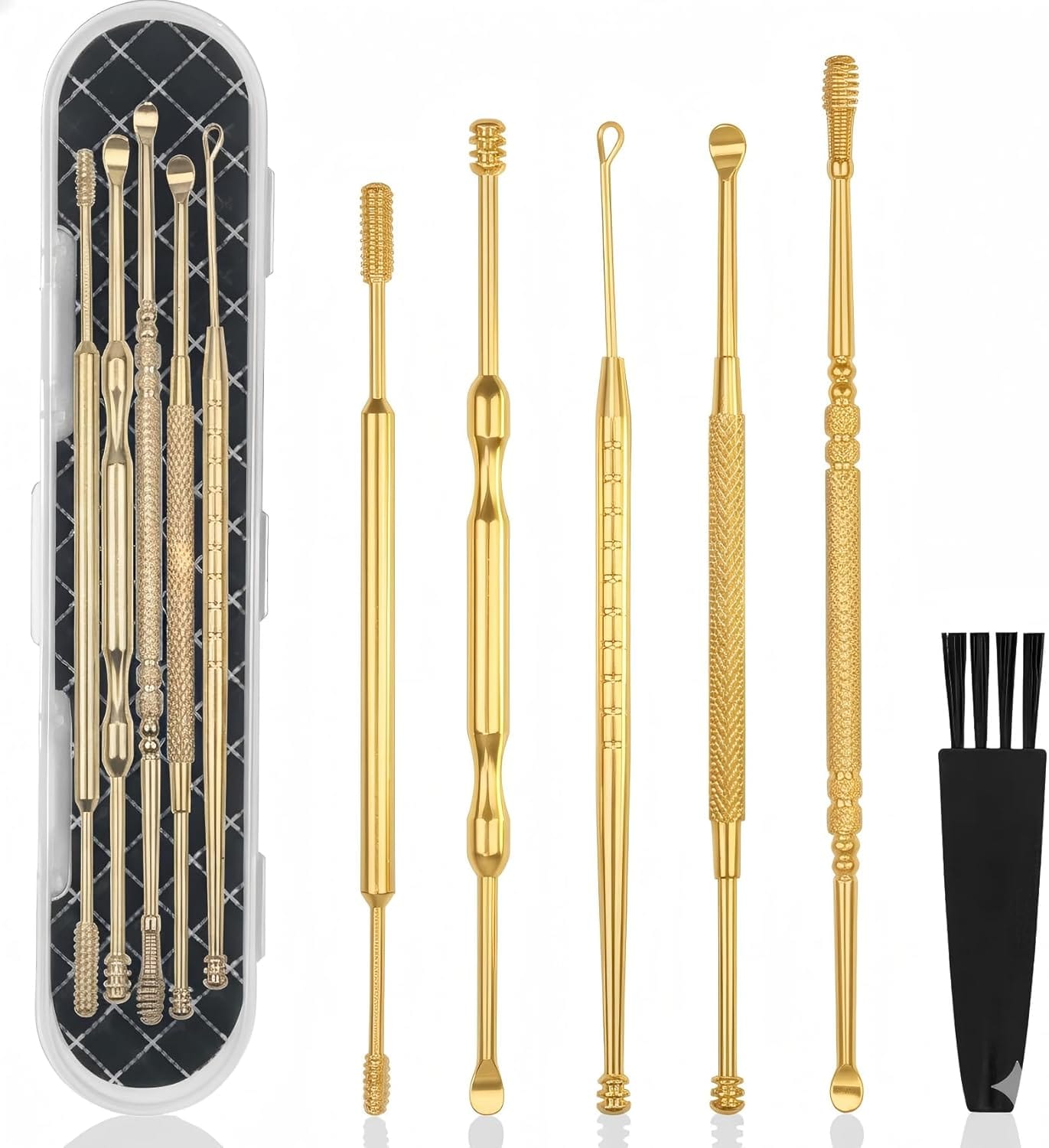
Hion Store. cleaning brush un fortunately plastic and case of unknown material, but in case some earwax problem might require a more industrial approach.
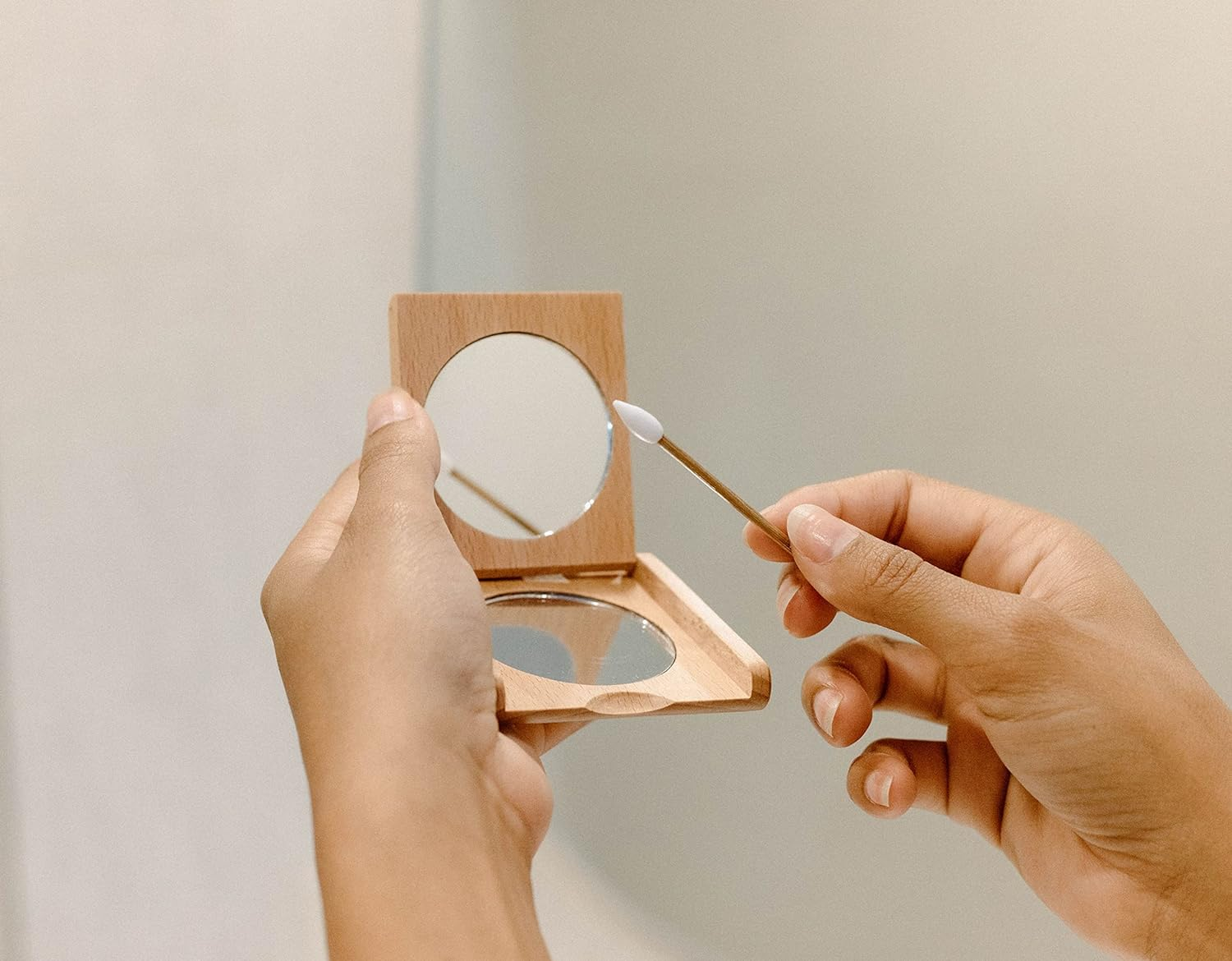
Generic (designed in Costa Rica)
The Last Swab
The Last Swab Store has a whole line of products dedicated to this idea, Much like... The Last Straw, people everywhere are embracing the idea of reusables in the bathroom in place of disposables.
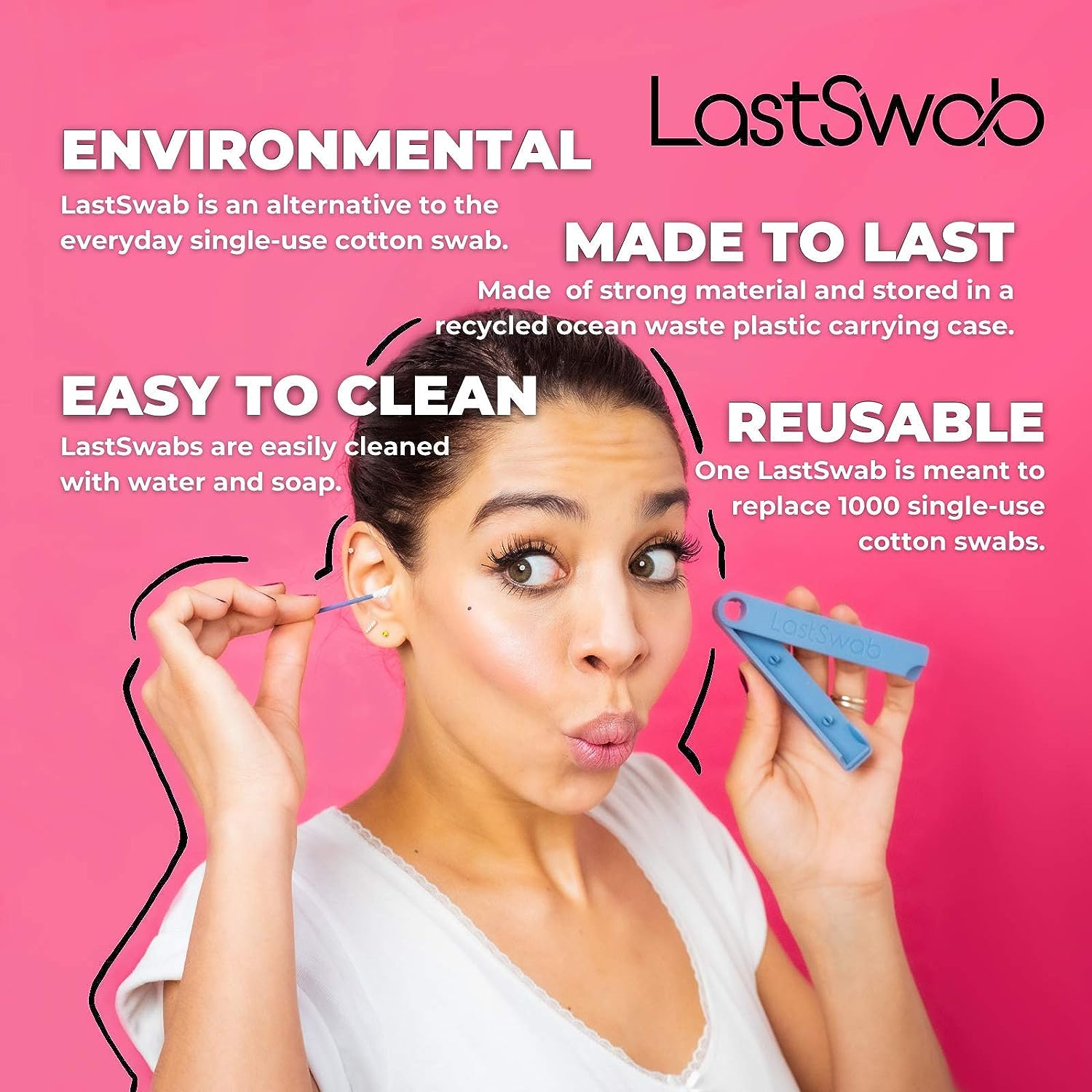
The Last Swab recyclable
But if you're not there yet, or have another need for disposables, you can still make sure it's environmentally friendly and a seahorse won't most likely suffer for it.
Zero Waste Alternatives to Conventional Ear Cleaning Tools
If you're not a big fan of Q-tips... With so plenty of zero waste options available in the market, you can give the plastic Q-tip a permanent break.
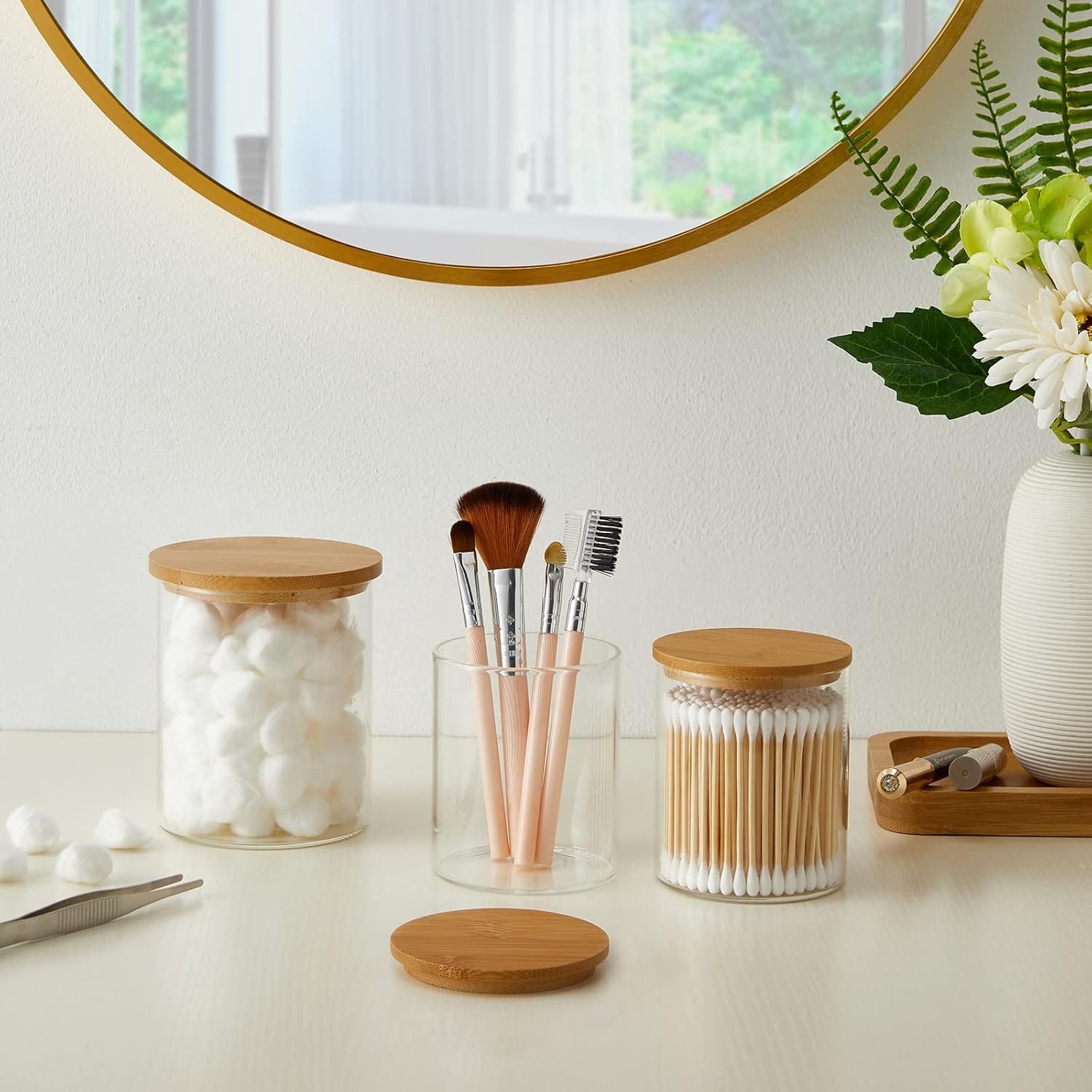
INIUNIK glass Q-tip jars with bamboo lids, set of two
For Best Plastic Free Toothbrushes Go Here
Composting Biodegradable Q-tips
Biodegradable and compostable Q-tips are the perfect replacements to use in your home. After use, just throw them right into your compost bin or even into the grass and let nature do the rest. It’s quite amazing!
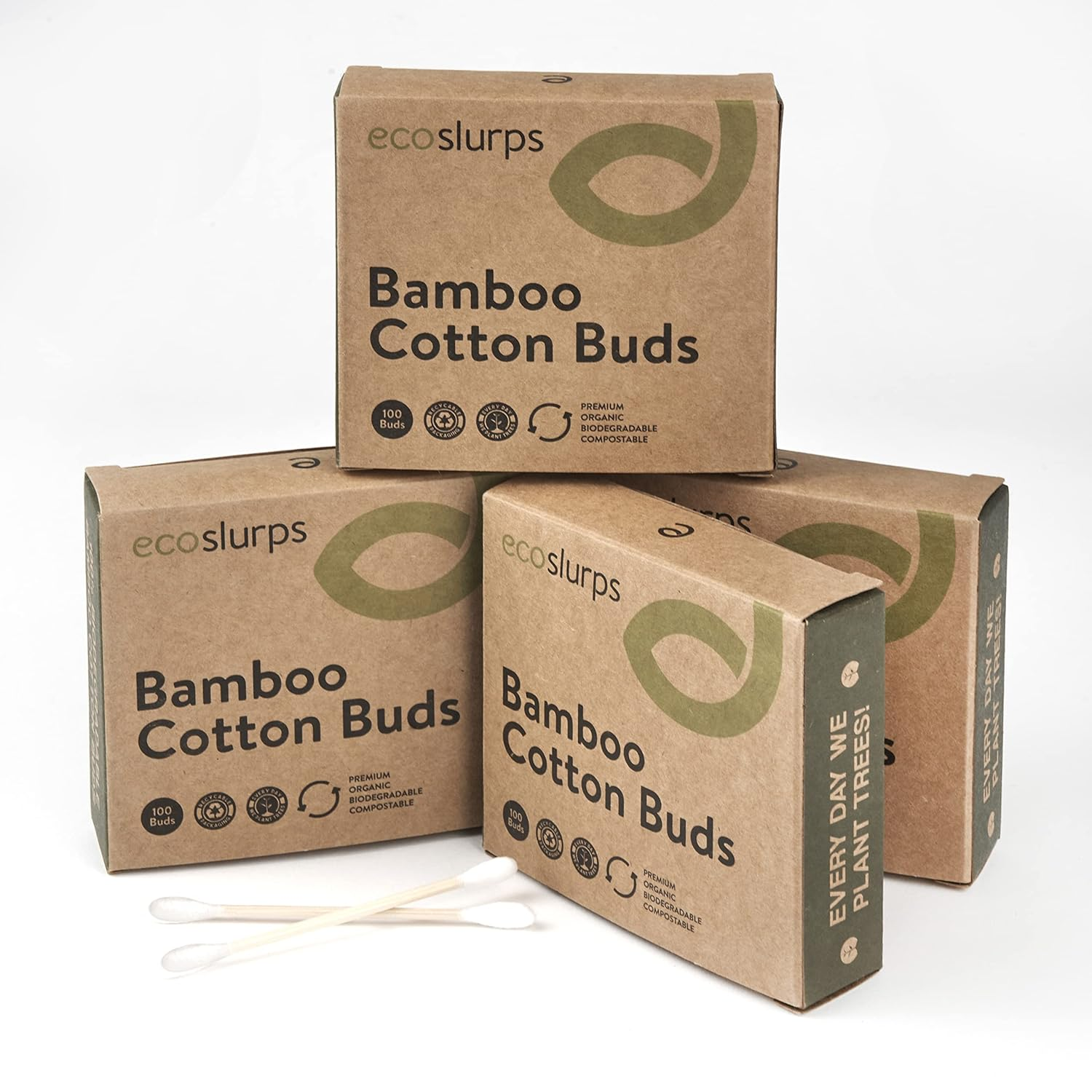
EcoSlups. stop the plastic waste!
In conclusion, there are many easy ways to incorporate environmentaly friendly Q-tips into your daily routine. Choosing to switch to zero waste Q-tips makes a significant contribution to the planet and shifting toward a zero waste lifestyle! Let's all make the switch to a more sustainable future.
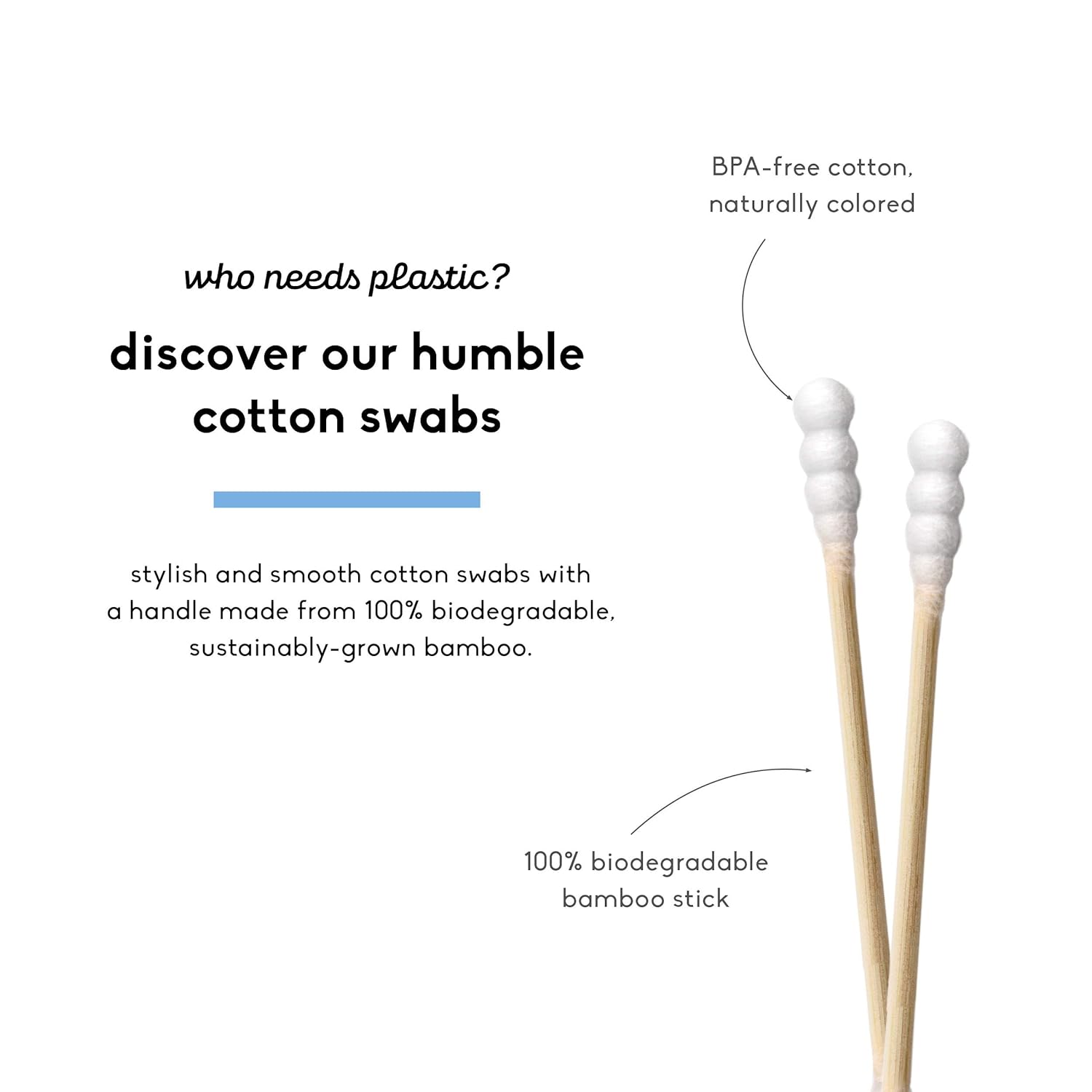
The Humble Company. Humble Co is last but not least among other cotton swab brands. Makers of biodegradable cotton swabs and buds for your makeup application or other single use needs. Not the only zero waste product Humble Co has to offer!
FAQs
How many plastic Q-tips are produced every year?
Well, buckle up folks, because it's not a pretty picture in the not-so-pleasant world of plastic Q-tips. According to some estimates, a whopping 1.5 billion, that's right, BILLION plastic Q-tips are produced every single day. That's enough to circle the Earth's equator twice. And if that's not enough to make you cringe, consider that many of these little plastic devils end up in our oceans and on our beaches, causing harm to marine life and polluting our planet.
How many Q-tips end up in the ocean each year?
According to a study published in Marine Pollution Bulletin, approximately 1.5 billion Q-tips are flushed down the toilet every day in the UK alone. Now, not all of these end up in the ocean, as some are captured by wastewater treatment plants. However, even if just a small percentage of these make their way to the sea, it can have a devastating impact on marine life.
What are some ways to make sure my plastic Q-tips don't make it into our oceans?
Simple... switch to reusable or bamboo/cotton swabs with a paper/wooden stick instead of plastic. They work just as well, and are much kinder to the environment. And if you do have to use plastic Q-tips, make sure you dispose of them properly, recycle if you can, or turn them into some kind of art project. Just never, repeat NEVER, flush them down the toilet or throw them out of the window, as they can easily end up in our waterways. Such tiny things, it's too easy to do!
And the best way to prevent plastic Q-tips from entering the oceans is to spread awareness about their harmful effects. Talk to your friends and family about the dangers of plastic waste, and how they can make small changes to reduce their impact on the environment. Every tiny thing counts.
For more information:
:max_bytes(150000):strip_icc()/__opt__aboutcom__coeus__resources__content_migration__treehugger__images__2019__09__seahorsecottonswab-8531071ffdcc442884b1b16bfbfa49ed.jpg)
https://lastobject.com/blogs/sustainability-101/cotton-swab-impact
